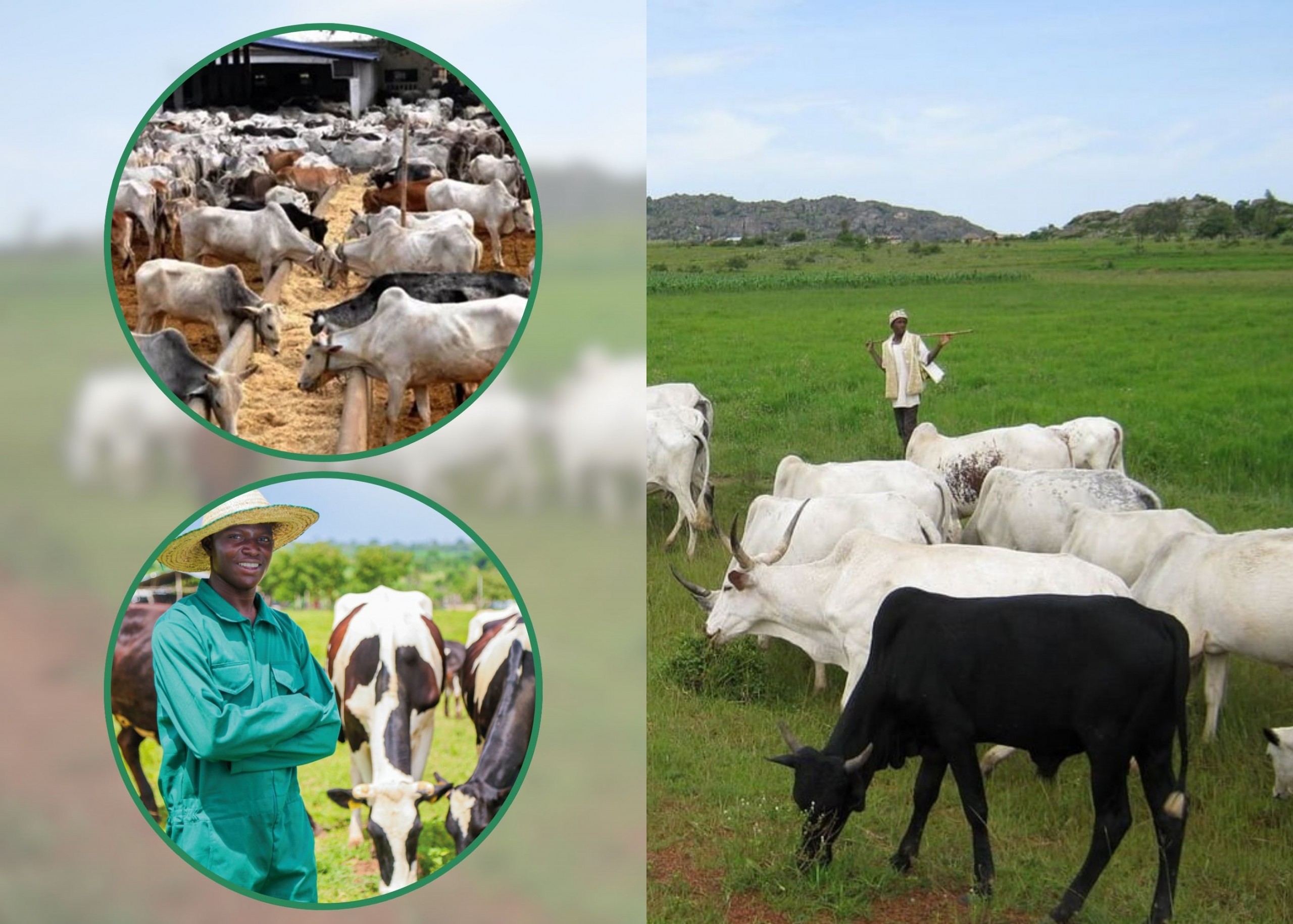News in Brief:
– A nationwide ban on open grazing in Nigeria could offer numerous benefits, including improved agricultural productivity, reduced conflict, environmental protection, and economic development.
– This proposition has faced serious opposition from some stakeholders claiming impediment to freedom of movement.
The issue of banning open grazing in Nigeria has been a subject of intense debate in and outside the National Assembly since a bill to that effect passed second reading in early June 2024.
Sponsored by Senator Titus Zam, the bill aims to establish a National Animal Husbandry and Ranches Commission to regulate and manage ranches throughout the country. The primary motivation behind this bill is to address the escalating conflicts between herders and farmers, which have resulted in significant loss of lives and property.
Essentially, the bill suggests that raising cattle on ranches is the best way to breed them in Nigeria. It called for a quick shift from traditional animal husbandry to more advanced methods that protect both the cattle and the people who tend to them.
However, a few voiced vehement oppositions to the bill, stating that it impedes on the constitutional right of freedom of movement. Notable among the dissenting voices is the Miyyeti Allah Cattle Breeders Association of Nigeria (MACBAN), the umbrella body of herders in the country. They posit that the bill is discriminatory in spirit and liable to even compound the issues that it seeks to prevent.
Meantime, as Nigerians wait for the final outcome of the legislative process on the matter, it is pertinent to examine the merits of a ban on open grazing and establishment of ranches in Nigeria.
Benefits of a ban on open grazing
1. Improved agricultural productivity
Open grazing has led to the destruction of vast tracts of farmland, hindering agricultural production. Earlier in the year, media outlets reported the destruction of 35,000 hectares of rice farm by roaming cattle. The President of Enugu State Graduate Farmers, Patrick Mba, lamented that the cultivation was done with borrowed funds and the cows ate 80 per cent of the harvest.
By restricting livestock movement, farmers can cultivate their lands without fear of their crops being destroyed, as in the case above and many others. This would lead to increased agricultural yields and food security, particularly in areas where open grazing has been a significant obstacle to farming.
2. Reduced death and displacement of farmers
Open grazing has been a major source of conflict between herders and farmers, leading to violence, displacement, and loss of livelihoods. According to available data, farmer-herder crisis has occurred in 22 out of the 36 states in Nigeria and accounts for over 60,000 deaths since 2001. A ban could effectively help to reduce these tensions and promote peaceful coexistence.
3. Environmental protection
Open grazing contributes to deforestation, soil erosion, and water pollution. A report by the FAO on deforestation, livestock grazing and farmer field schools posit that grazing livestock are often considered a threat to forests and landscapes because they can damage vegetation and erode soil. Therefore, by restricting livestock movement, the government can help to protect the environment and conserve natural resources for future generations.
4. Improved public health
Open grazing can be associated with public health risks, such as the transmission of diseases. A publication stated that zoonotic infectious diseases account for an estimated 60% of all human infectious diseases. This policy could help to reduce these risks and improve the overall health of the population.
5. Economic development
It could create opportunities for economic development through the establishment of ranches and the promotion of sustainable livestock farming. The success story of Botswana in this regard, serves as a prime example. Its cattle farming project has benefited farmers through acquiring new skills and knowledge, leading to healthier cattle and increased income.
6. Increased land value
By reducing the risk of damage to crops and property, a ban could increase the value of agricultural land. Also, areas notorious for conflict with herders can start leasing or selling land for better value.
7. Better infrastructure development
A ban could facilitate the development of infrastructure such as dams and water sources, which will address the challenges of infertile land and unreliable rainfall. This is especially vital in areas previously affected by open grazing.
8. Improved security
By reducing conflict between herders and farmers, this policy could contribute to a more secure and stable environment. It will also reduce production costs as agribusiness owners invest financial resources in security operatives to protect their ventures.
9. Enhanced tourism
A visiting Belgian ambassador to Nigeria once expressed dismay at the sight of roaming cattle in the FCT. This was considered a blight on the city’s landscape, consequently affecting tourism. A restriction on free cattle movement could help to protect natural areas and promote tourism, which can contribute to economic growth.
10. Strengthened governance
The policy could demonstrate the government’s commitment to good governance and the rule of law. This is especially so as it shows that government is inclined to the yearnings of the masses in ensuring fairness and equity. It will renew the confidence of the masses in the administration and encourage foreign investments in livestock production and farming.
Conclusion
Overall, the proposed ban on open grazing has faced opposition from some stakeholders, especially those reluctant to let go of old traditions. Their arguments goes beyond the loss of cultural and traditional heritage as it also sheds light on the economic impact on pastoralists.
There is also the issue of enforcing the ban which could be a challenge, especially in remote areas where there is limited government presence.
However, key benefits like helping to address the conflicts between herders and farmers and improving agricultural productivity, makes it a worthwhile policy for consideration. It also helps in protecting the environment, conserving forests and reducing the spread of zoonic diseases.



